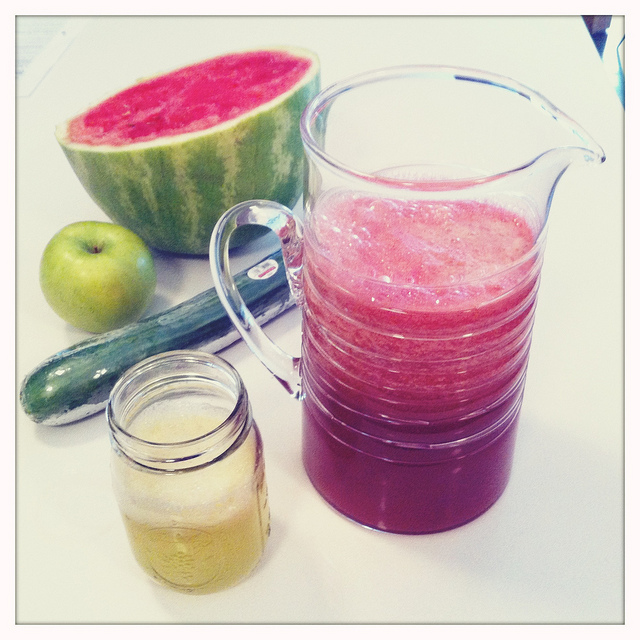Peruse any fitness blog or magazine this time of year and chances are, there is something about the benefits of detoxing.
On my social media feed, several friends are posting about how they are currently or plan to start detoxing. The detoxes range from everything to cutting out sugar and/or processed food to going on a juice cleanses for several days.
Despite the fact that many experts say it isn’t possible to really detox and/or most detox plans really aren’t necessary or beneficial, I know from personal experience how good it can feel—physically and psychologically—to go on such a plan. (For the latter, there is often a sense of great pride or a feeling of “I did it!” if we are able to carry out the entire plan.)
However, not all detoxes are safe. Indeed, some of them can be downright harmful.
A recent detox plan promoted by actress Gwyneth Paltrow on her website Goop.com has come under fire.
Exaggerated claims aside, Paltrow claims that it can rid the body of all sorts of nasty things like environmental pollutants, pesticides and fire retardants—at least one nutritionist who spoke to the UK-based newspaper The Daily Telegraph has criticized it because it fails to provide enough protein and calories that most people need to ward off hunger.
Paltrow’s plan is hardly alone in that. Indeed, the ever popular juice cleanse, where people exist on nothing but various fruit and vegetable juice combinations for a day or more, is even less likely to leave us feeling satisfied. (One of the main reasons is that most juicers remove the fiber from the fruits and vegetables that are turned into juice. In addition to doing a whole host of things, including keeping bowel movements regular, fiber makes us feel full after eating.)
While most experts point out that going on one of these plans probably won’t hurt most healthy people, those who are diabetic, pre-diabetic or have any sort of issues with blood sugar should be very cautious about embarking on any detox plan and consult a medical expert beforehand.
Even those who that does not apply to should consider the very real costs of a detox, both in terms of time and money.
In most cases, a pre-package juice plan will set us back at least a few hundred dollars, while a plan like Paltrow’s includes recipes to make at home that often contain ingredients that aren’t so easy to find at the average supermarket. (For example, she suggests using the water from “young Thai coconuts”.)
Lastly, just the act of restricting a wide range of foods—no meat, no gluten, no corn—means that we are far more likely to fall off the wagon and indulge in the very foods we set out to restrict.
Still, for those who still want to detox and have the okay from their healthcare provider, the best tip I can offer is not to detox for more than a few days maximum, and keep in mind that most benefits, such as weight loss, are not going to last—these aren’t meant to be long-term diet plans.
In the end, those of us who are serious about wanting to clean up our lives and get in shape need to know that the only way to do so is to make permanent, life-long changes.
Eating well means, among other things, eating enough.
Without enough protein and calories, we simply aren’t going to have the energy to get through our daily tasks, much less exercise. (Sorry, but there is no way to be truly healthy and not exercise.)
And while a short detox may provide some with the psychological boost necessary to implement these changes, most of us may be better off saving our time and money and skipping the detox altogether.
Love elephant and want to go steady?
Sign up for our (curated) daily and weekly newsletters!
Author: Kimberly Lo
Editor: Emily Bartran
Photo: Dana Robertson/Flickr









Read 2 comments and reply